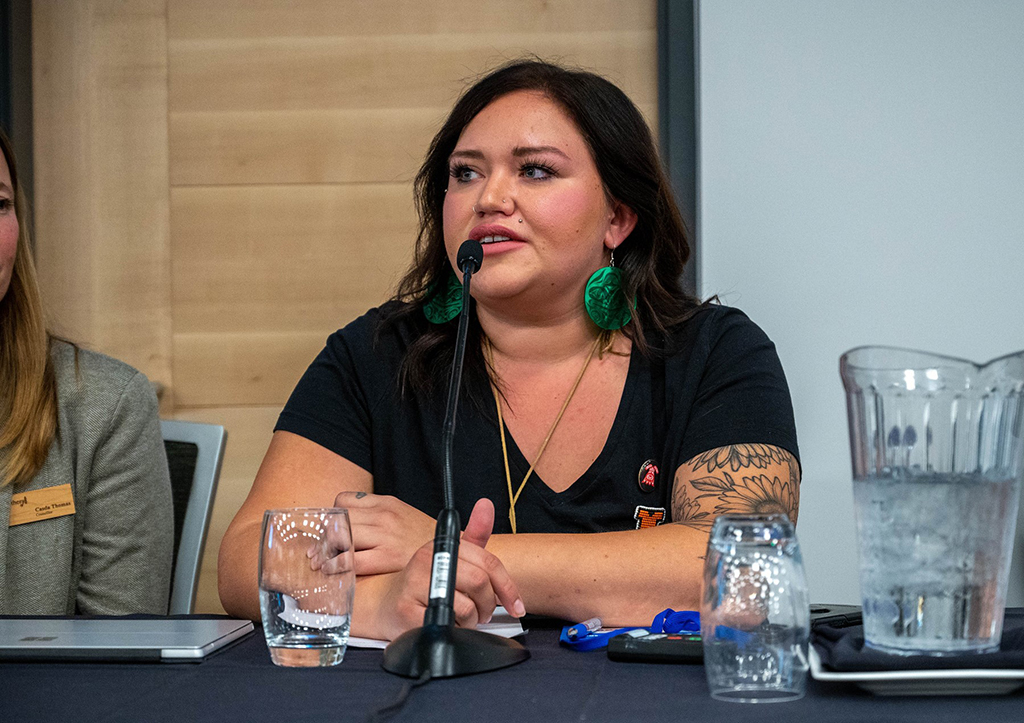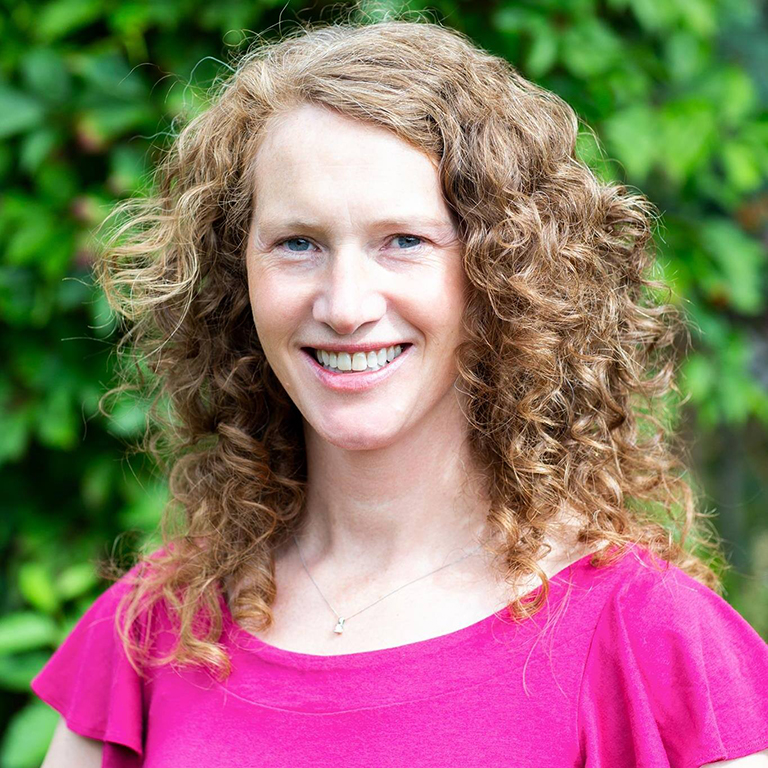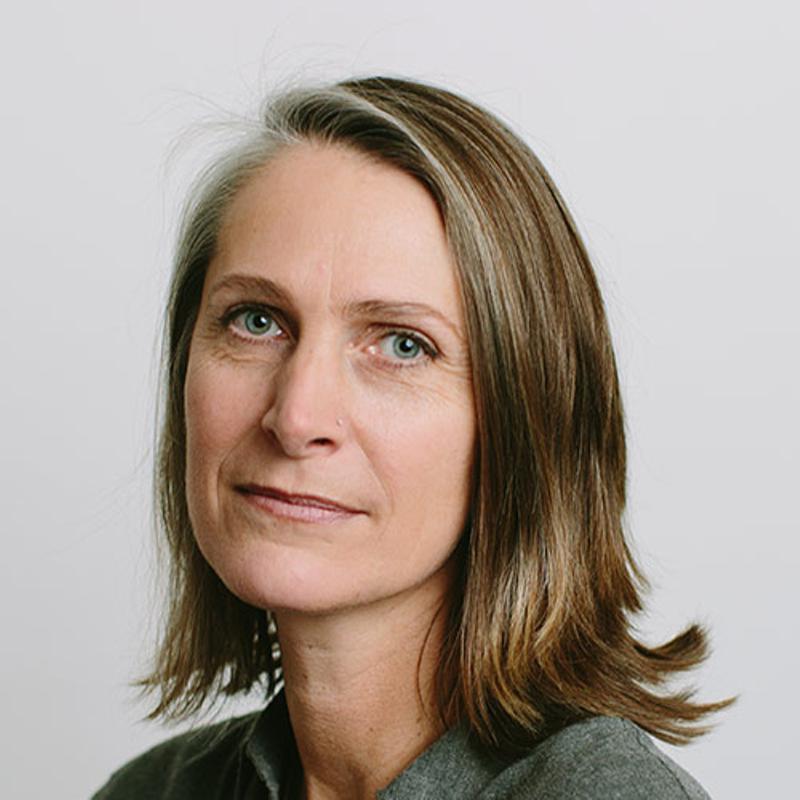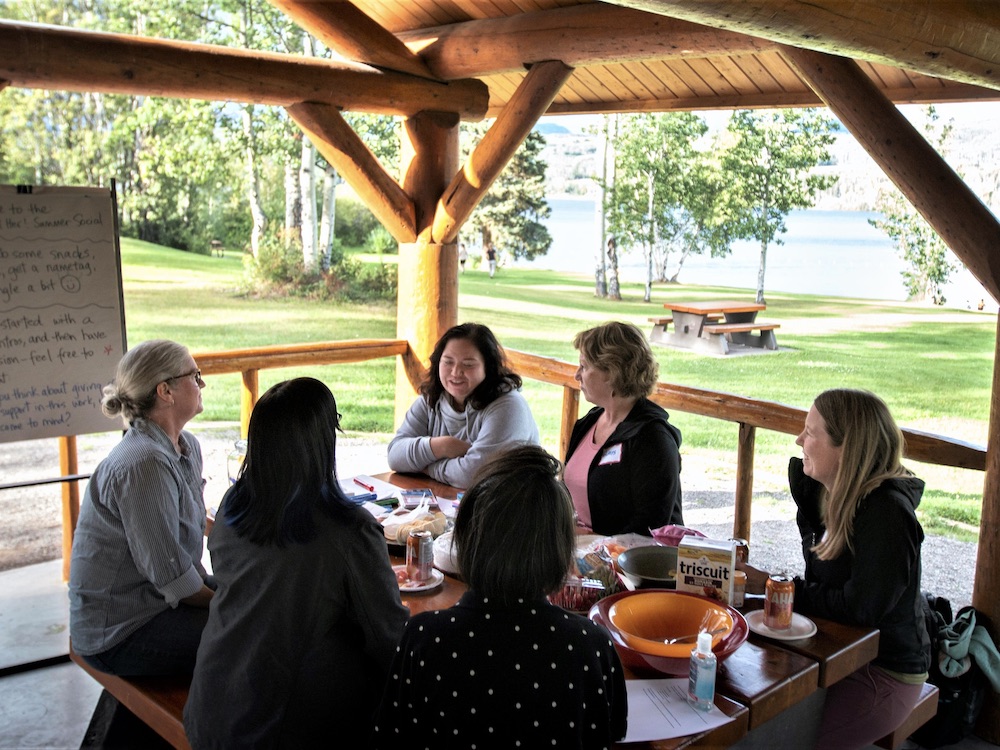Under a picnic shelter at a park near Smithers, B.C., a handful of women gather to talk about being local politicians.
In many ways their experiences are unique — from serving on band councils to town councils. Some are veterans of local politics and some are hoping to win their first seat in the Oct. 15 municipal elections.
But in many ways, they are similar, from juggling family responsibilities and other jobs to making it all work on the meagre compensation that comes with serving in local politics.
The gathering is hosted by Elect Her! Northwest BC, a project working to bring gender parity to elected councils in the region, including First Nations band councils, municipal councils and regional districts. Through meetups like these, panel discussions and education in the broader community, they seek a safer, more respectful and inclusive working environment for elected leaders.
It’s not an easy time for anyone to be in politics, especially women. Research shows that online abuse is increasing and is more likely to be aimed at women.
A recent study found women, and particularly BIPOC women, are disproportionately targeted by violence and harassment at every level of government in Canadian politics, regardless of political affiliation.
Researchers also note that targets include others in the political arena, such as journalists, staff and families.
Over the weekend, Anaida Poilievre, wife of Conservative Party of Canada Leader Pierre Poilievre, was the target of racist and misogynist online comments, including threats of sexual violence.
Last month, Deputy Prime Minister Chrystia Freeland was accosted by a man who yelled a flurry of insults and obscenities at her in the city hall in Grand Prairie, Alberta.
The abuse is weakening our democracy, the research found.
The women sitting around the picnic table, sharing snacks and conversation, agree.

Casda Thomas is a Smithers town councillor approaching the end of her first term. She recently made the difficult decision not to run again.
The past four years threw a lot of curveballs, from a stint as acting mayor — something she describes as both challenging and rewarding — to the pandemic, and a shift in how the public communicates online.
“It’s scary,” she says about the vitriol she sees aimed at local politicians. “It has me concerned not just for our town, but it’s happening everywhere. What does that mean going forward, for our democracy?”
She says anecdotally she’s heard from a lot of people, particularly women, who won’t run again.
In fact, election data from CivicInfo BC shows a slight increase in women running for municipal councils in recent years — up to 33 per cent this election as opposed to 29 per cent in 2008.
But the trend also shows fewer incumbents seeking re-election.
This year, and in B.C.’s previous election in 2018, about 30 per cent of people running for office already held a seat in local politics. That proportion has been steadily dropping. In 2008, incumbents were about 37 per cent of candidates.
Thomas says the decision not to run wasn’t easy. Much of the experience was positive, she says, and her council functioned well and most interactions with the public were constructive.
She says the key factor became prioritizing family and wellness.
“Could I make it work for another four years? Yes. But it would come with a cost to my mental health and to my family that I am not willing to accept,” she says. “I have come to realize that I haven’t been modelling a balanced lifestyle for my kids. I have been showing them that it’s OK to be overworked and overwhelmed.”
It’s a sentiment that’s repeated by other women in local politics who say their concerns often aren’t been heard at male-dominated council tables. They say conversations about things like shifting meetings to accommodate their parenting schedules, help with child care and better pay could encourage more women to enter politics.
It was these shared experiences that first brought a group of women together at the Union of BC Municipalities’ 2019 convention. They began meeting over Zoom in early 2020.
Earlier this year, the Town of Smithers and District of Kitimat secured a grant from the Federation of Canadian Municipalities to launch Elect Her! Northwest BC. Kitimat Coun. Lani Gibson says she was inspired by a similar project in Nova Scotia that successfully doubled the number of women in elected leadership.
“We were wanting to do two overarching things. One was really to support women who are elected, to make it a better experience for them. The other was to educate the community,” she says, in the hopes of encouraging more women to run.

Like Thomas, Gibson says her first term on Kitimat council had its ups and downs: She credits her council with important accomplishments over the past four years. But she says big, important conversations — often around hot-button topics like diversity, housing and the environment — sometimes became tripping points.
She sees room for training in the skills that would help facilitate better collaboration and conversations.
“There needs to be institutional reform if we’re going to actually hear each other and be able to make decisions together in a collaborative way,” she says. “The process just doesn’t make space for including these diverse views.”
That includes the topic of salaries, an often-awkward conversation for councils to have about how much to pay themselves from the municipality’s coffers.
In July, CBC assessed salaries of municipal council members across the province. Prince George, a city of 74,000 people in the northern Interior, was the only northern municipality to make the top 20 with a mayoral salary of $130,517 and councillor salary of $37,908.
Kitimat and Smithers sat significantly further down the list, with councillor salaries at $25,000 and $16,000, respectively.
Gibson says that during her term, Kitimat council raised compensation for councillors from what amounted to about $14 an hour, or less than minimum wage, to about $24 an hour.
While some believe the job should be treated as a community service, that can present a barrier to people who can’t afford to take a pay cut in order to run for local office. Layer on the need for child care and a lack of benefits or pension, and for many — single moms, for example — it just doesn’t work.
“I would never have been able to do this if I didn't have a spouse to pay our household bills and provide free child care for all the evening meetings,” Gibson says.
When she started in 2018, Gibson says she found herself juggling the challenges of her law career, council commitments and family life. Council meetings were held in the evenings — overlapping with what she describes as her “most important job,” parenting her son — and something had to give.
But she says council voted against a motion to occasionally hold meetings during daytime hours and also resisted the option to attend some meetings virtually. It wasn’t long before she felt she needed to give up her job as a lawyer to make it all work.
She says the lack of compensation is the biggest reason she isn’t seeking re-election.
“I have really enjoyed it and I really wish that there was some form of pension so that I could justify just giving up my other job and continuing to do this,” Gibson says.
“There are not enough hours in the day to take care of my child, worry about my aging parents and carry those two jobs that both have heavy burdens,” she says. “I felt a really firm unwillingness to recognize that I had unpaid work in my home that was as important as their paid work during the day.”
Gladys Atrill was first elected to Smithers council in 2014 and won the mayor’s seat in a 2020 byelection. She’s committed to running for another term, but says she’s seen a distinct shift over the past two years in how some community members engage online with local politicians.
“I do think what we’re seeing across communities is that there is an attrition of previous local government officials and it is a reflection of the difficulty of the last term,” she says.
“My biggest hope is that we will re-establish positive social norms again in how we treat each other,” she says. “The world is a bit changed and it’s a big learning experience for all of us, but how we treat each other still really matters.”
Being an elected leader in a small community is especially challenging, Thomas says.
“I found the hardest part was... when you walk down the street and someone you know gives you the brush off,” she says. “It’s hard when people that you feel are friends don’t give you the benefit of the doubt.”
For those serving on First Nations band councils, there is an added layer of intimacy as most have either family or lifelong connection to others in the community, adding pressure to the job.
Kayla Mitchell, a band councillor in the Wet’suwet’en community of Witset, compares it to being in a “glass bowl.” She’s halfway through her two-year term and hasn’t decided if she’ll run again.
“In Indigenous communities, we’re very close knit and everybody’s either related or knows people,” she says. “With the layers of trauma that our communities have experienced, we’ve also experienced high levels of lateral violence, so there are times where I can feel a tinge of that lateral violence and it can weigh heavy on my emotional wellness.”
She says she’s developed tools to better understand where community members are coming from and to protect herself. She’s also learned to focus on the needs of the community and shut out the “social media warriors” who make racist comments from outside the community.
“I try my best not to engage,” she says. “My work is in supporting anti-racism in school spaces and supporting inclusive spaces and also to foster respect for Wet’suwet’en culture and the caretakers of the land.”
Mitchell says about a third of Indigenous band councils are made up of women, a figure similar to municipal politics. In particular, she credits Witset council, where five of 12 council members are women, with having “a lot of cultural groundedness within our women on our team.”
She hopes that Elect Her! Northwest BC will help to encourage more women to run.
“I really want to encourage all of the young women, but in particular young Wet’suwet’en women, to run and make a difference,” she says. “I think so many times we downplay our strengths and what we have to offer. If we have an outside perspective and if we give it a shot, we realize that we’re capable of more than we could ever imagine.”
Crystal Smith, chief councillor for the Haisla Nation, also points to cultural differences that make life in elected positions easier for women in her community.
“We’re a matrilineal society so, in regard to women being placed in positions of leadership, it’s a natural occurrence to have in our communities,” she says. When Smith, who became chief councillor in 2017, was first elected to council in 2013, she says about half the council was women. Today, she is joined by two other women on the nine-person council.
She says she’s passionate about bringing more women to the council table. Elect Her! Northwest BC is creating important conversations that will enable that to happen, she says.
“We need that mixture of different experiences and different backgrounds to ensure we're meeting the needs of people in community, regardless of gender or your identity,” she says.
While the position has had its ups and downs, Smith, a single mother and grandmother, says she wouldn’t choose to give up the personal growth that’s come with it.
“I'm not the same mom I was when I was first elected,” she says. “It impacts so many different areas of your life. These last five, six years have been phenomenal, both in good and bad [ways].”
Elect Her! Northwest BC’s grant continues until early in the new year. Beyond that, it’s unclear what the group’s future will look like. Thomas and Gibson both say they will remain involved after their current terms in office end and until the grant ends in February but hope other women — those elected Oct. 15 — will carry the torch forward.
“I think it’s a movement that’s really just building and hopefully, with Casda and I not running again, there'll be some women getting elected on Oct. 15, that want to join the steering committee and help it to grow,” Gibson says. ![]()
Read more: Municipal Elections 2022, Municipal Politics, Gender + Sexuality


















Tyee Commenting Guidelines
Comments that violate guidelines risk being deleted, and violations may result in a temporary or permanent user ban. Maintain the spirit of good conversation to stay in the discussion.
*Please note The Tyee is not a forum for spreading misinformation about COVID-19, denying its existence or minimizing its risk to public health.
Do:
Do not: